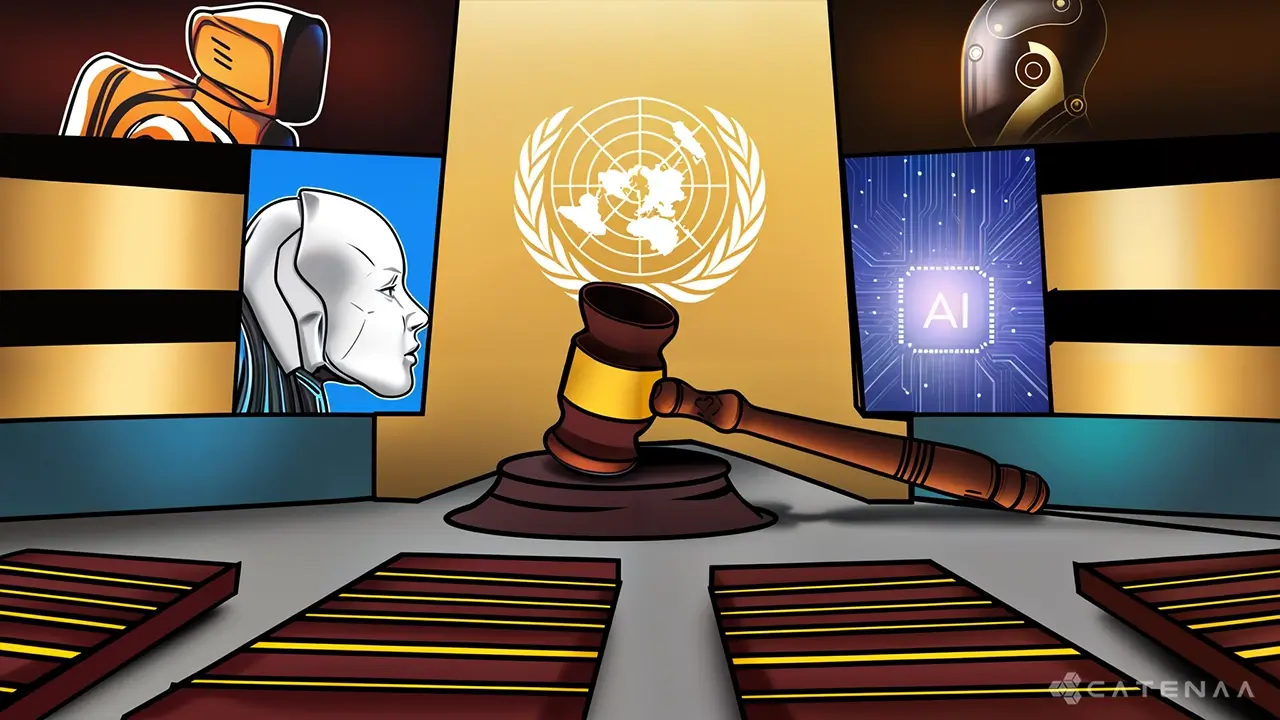United Nations General Assembly adopted its first-ever resolution on AI on March 21
UNITED NATIONS, Monday, April 1, 2024- In a significant step towards governing the development and use of artificial intelligence (AI), the United Nations General Assembly adopted a landmark resolution on Thursday, March 21, 2024.1.
The resolution, spearheaded by the United States and co-sponsored by over 120 member states, emphasizes the importance of “safe, secure, and trustworthy” AI systems.
The European Union is ahead in this regard, as it has already taken steps to regulate the development of AI. December 8, 2023, marked a significant milestone in European AI regulation after three days of intense discussions.2
The UN resolution highlights the potential of AI to accelerate progress towards the UN’s Sustainable Development Goals, but also recognizes the need to protect human rights throughout the AI lifecycle.
This marks the first time the General Assembly has addressed regulating the burgeoning field of AI.
The resolution calls on member states and stakeholders to refrain from using AI systems that violate international human rights or endanger individual rights. It emphasizes the importance of applying offline human rights protections to online AI activities.
Recognizing the digital divide between developed and developing nations, the resolution urges cooperation and support for developing countries to ensure equitable access to AI technology and bridge the digital literacy gap.
The resolution signifies a commitment to ensure that AI development prioritizes human rights, safety, and dignity while promoting sustainable development through responsible technology use.
The resolution emphasized the importance of international law and human rights principles in the development and deployment of AI technologies. It references key UN documents, such as the Universal Declaration of Human Rights and the 2030 Agenda for Sustainable Development, highlighting the need for ethical and inclusive AI systems.
One of the central themes of the resolution is the promotion of safe and responsible AI systems to accelerate progress towards the Sustainable Development Goals (SDGs). It emphasizes the role of AI in addressing global challenges while ensuring equitable access to its benefits.
The draft resolution also stresses the significance of data governance and calls for international cooperation to develop effective frameworks for managing and sharing data
It underscores the need for collaboration between governments, the private sector, civil society, and other stakeholders to create a conducive environment for the development and deployment of AI technologies.
- news.un.org: https://news.un.org/en/story/2024/03/1147831[↩]
- globalcompliancenews.com: https://www.globalcompliancenews.com/2024/02/03/https-insightplus-bakermckenzie-com-bm-technology-media-telecommunications_1-european-union-eu-reaches-landmark-deal-on-ai-regulation_01092024/[↩]


